What is cPanel?
Introduction
cPanel is a widely used web hosting control panel that provides a graphical interface and automation tools designed to simplify the process of hosting a website.
For beginners and experts alike, cPanel offers a user-friendly platform that streamlines website management tasks. In this article, we’ll explore what cPanel is, its features, benefits, and how it can transform the way you manage your website.

Introduction to cPanel
cPanel, a web-based control panel, has become a cornerstone in the web hosting industry. Launched in 1996 by J. Nicholas Koston, cPanel has evolved significantly, offering a robust suite of tools to manage websites efficiently.
It provides a graphical user interface (GUI) and automation tools designed to simplify complex website management tasks, making it accessible to both novices and seasoned developers.
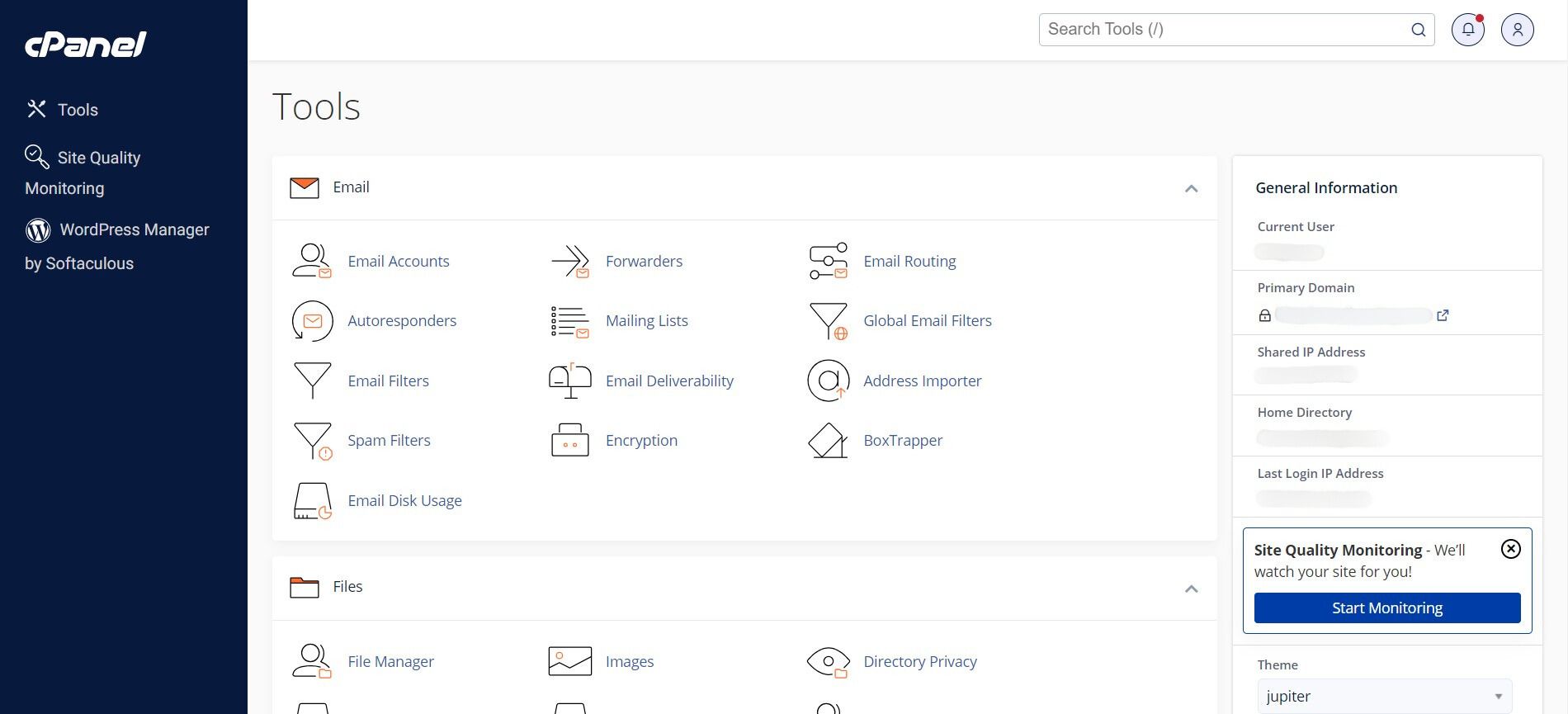
Key Features of cPanel
User Interface
cPanel boasts a clean, intuitive user interface that allows users to navigate through various functions with ease. The layout is organized into sections, each dedicated to different aspects of website management, such as files, databases, and email.
Dashboard
The cPanel dashboard is the central hub where users can access all the tools and features. It provides quick links to frequently used functions and offers customizable widgets for a personalized experience.
File Management
File management in cPanel is straightforward with the built-in File Manager. Users can upload, download, edit, and organize files directly through the interface. Additionally, cPanel supports FTP accounts for more advanced file transfer needs.
Advantages of Using cPanel
Ease of Use
One of the biggest advantages of cPanel is its user-friendliness. The interface is designed to be intuitive, reducing the learning curve for new users. Detailed documentation and community support further enhance the user experience.
Security
cPanel includes several security features to protect websites. These include SSL/TLS management, IP blocking, directory privacy, and more. Regular updates ensure that the platform remains secure against emerging threats.
Automation
Automation tools in cPanel streamline many routine tasks, such as backups, updates, and email management. This saves time and reduces the risk of errors, allowing users to focus on more critical aspects of their website.
Setting Up Your cPanel Account
Initial Setup
Setting up a cPanel account is a straightforward process. Most web hosting providers offer cPanel as part of their hosting packages. After purchasing a hosting plan, users receive login credentials to access their cPanel dashboard.
Configuration
Upon the first login, users can configure their account settings, including setting up domains, creating email accounts, and customizing the interface to suit their preferences.
Navigating the cPanel Dashboard
Main Sections
The cPanel dashboard is divided into several sections, each focusing on different aspects of website management. These sections include Files, Databases, Domains, Email, Metrics, Security, and Software.
Key Icons
Icons play a crucial role in cPanel’s interface, providing visual cues for various functions. Understanding these icons helps users quickly locate and utilize the tools they need.
File Management in cPanel
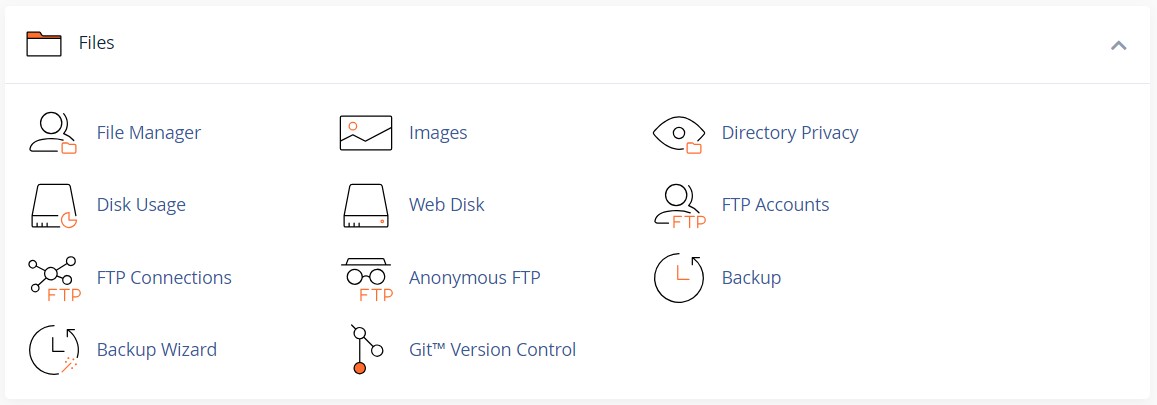
File Manager
The File Manager in cPanel allows users to handle all their files directly from the browser. It supports file uploading, editing, moving, and deleting, providing a comprehensive file management solution.
FTP Accounts
For users who prefer traditional file transfer methods, cPanel supports FTP accounts. This allows for secure file transfers between the user’s local machine and the server.
Managing Domains with cPanel

Adding Domains
cPanel makes it easy to add and manage multiple domains. Users can add new domains, park domains, and manage DNS settings with just a few clicks.
Subdomains
Creating subdomains in cPanel is a simple process. Subdomains allow users to create separate sections of their website under the main domain, such as blog.example.com.
Redirects
Redirects are essential for guiding visitors to the correct pages. cPanel provides tools to create both temporary and permanent redirects efficiently.
Email Management in cPanel
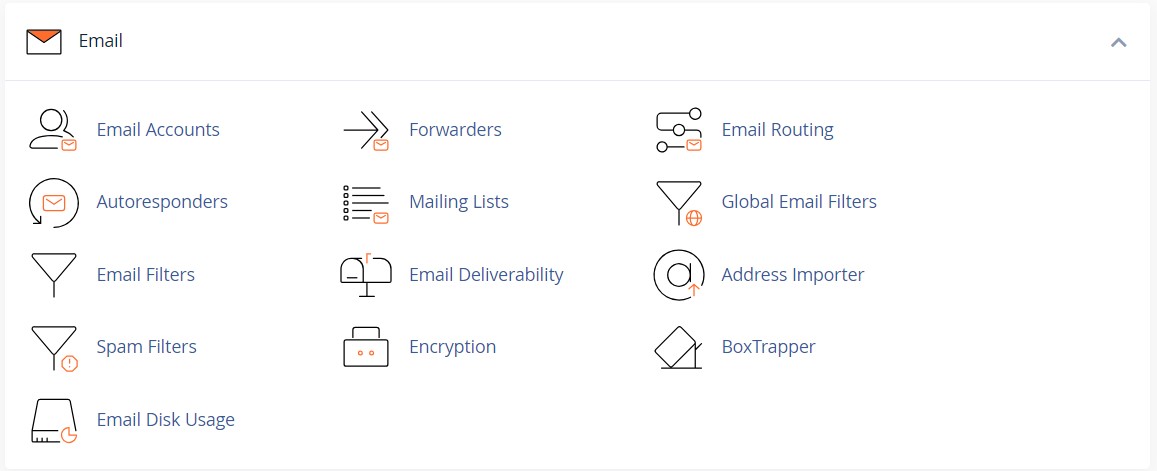
Creating Accounts
cPanel simplifies email management by allowing users to create and manage email accounts associated with their domains. Users can set up multiple accounts, each with custom settings.
Spam Filters
Spam filters in cPanel help keep inboxes clean by automatically detecting and filtering out unwanted emails. Users can customize these filters to suit their specific needs.
Database Management

MySQL
cPanel includes MySQL database management, enabling users to create, modify, and delete databases. It also provides tools for managing database users and their permissions.
phpMyAdmin
For more advanced database management, cPanel integrates with phpMyAdmin. This powerful tool allows users to perform complex database operations through a web interface.
Backup and Restore Options
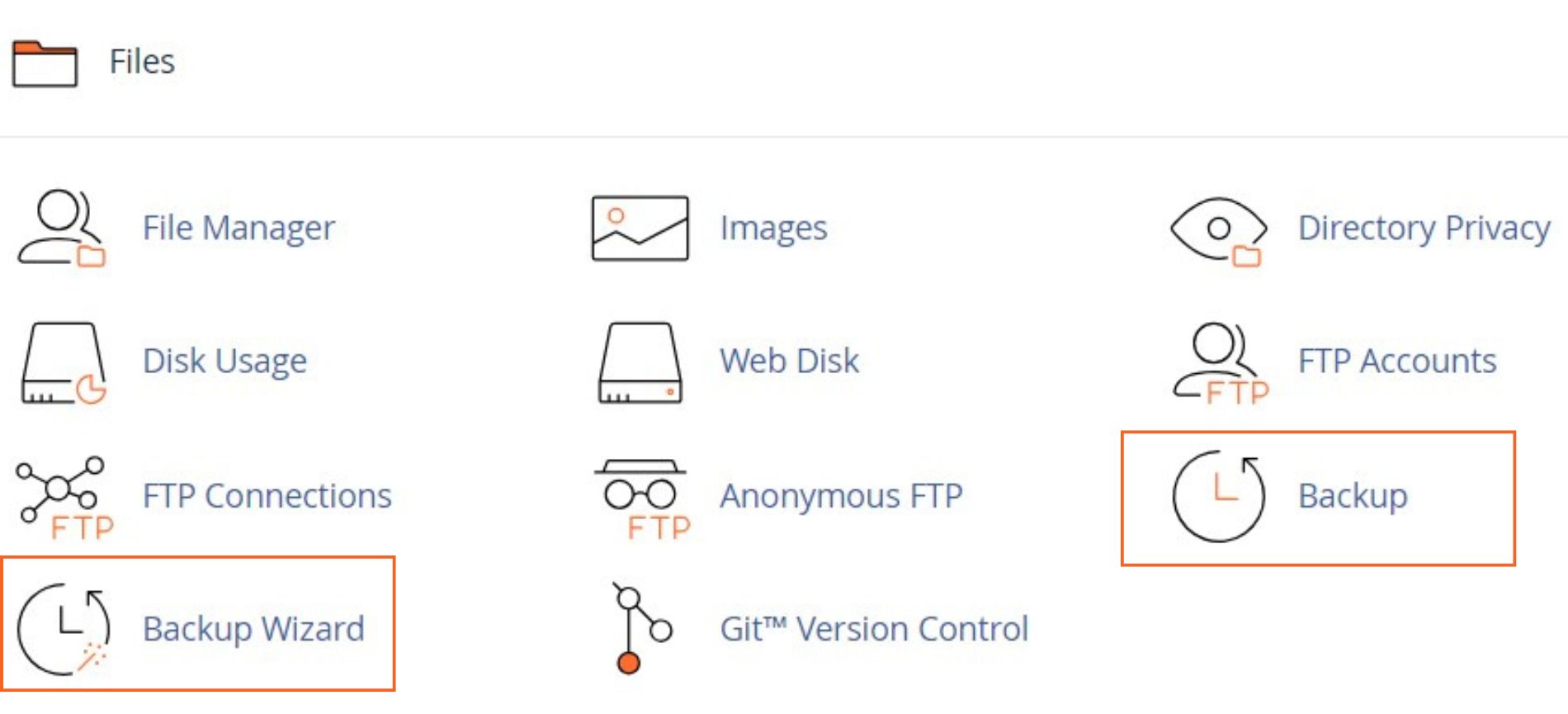
Backup Tools
cPanel offers comprehensive backup tools, allowing users to create full or partial backups of their website. This ensures data is safe and can be restored in case of any issues.
Restoring Data
Restoring data in cPanel is a straightforward process. Users can choose to restore entire backups or specific sections, such as databases or email accounts.
Security Features in cPanel

SSL Certificates
Securing a website with SSL is critical, and cPanel makes this process simple. Users can install and manage SSL certificates directly from the interface, ensuring secure connections for their visitors.
IP Blocking
To enhance security, cPanel includes IP blocking features. Users can block specific IP addresses from accessing their website, protecting against potential threats.
Using cPanel for SEO
Tools
cPanel includes several SEO tools to help improve website visibility. These tools assist with tasks like creating sitemaps, managing redirects, and optimizing metadata.
Optimization Techniques
By leveraging cPanel’s SEO tools, users can implement various optimization techniques to enhance their site’s performance and ranking on search engines.
Installing Applications with cPanel

Softaculous
Softaculous is an auto-installer included in cPanel, providing users with the ability to install hundreds of applications with a single click. This includes popular platforms like WordPress, Joomla, and Drupal.
One-Click Installs
One-click installs streamline the setup process for various applications, saving time and ensuring proper configuration.
Monitoring and Analytics

Logs
cPanel provides access to detailed logs, offering insights into website activity, errors, and visitor statistics. These logs are crucial for troubleshooting and performance monitoring.
Metrics
Metrics in cPanel help users understand their website’s performance. This includes data on bandwidth usage, disk space, and visitor statistics.
Reports
Generating reports in cPanel is simple, allowing users to review important data and make informed decisions about their website management.
Customizing Your cPanel
Themes
cPanel allows users to customize their interface with different themes. This personalization enhances the user experience and makes the dashboard more visually appealing.
Branding
For resellers and hosting providers, cPanel offers branding options. This allows for a customized look and feel, reflecting the company’s branding on the control panel.
Troubleshooting Common Issues
Error Logs
Error logs in cPanel provide detailed information about issues affecting the website. These logs are invaluable for diagnosing and fixing problems.
Support Options
When troubleshooting common issues, users can rely on cPanel’s extensive documentation and community forums. Many hosting providers also offer dedicated support for cPanel users.
Advanced Features of cPanel
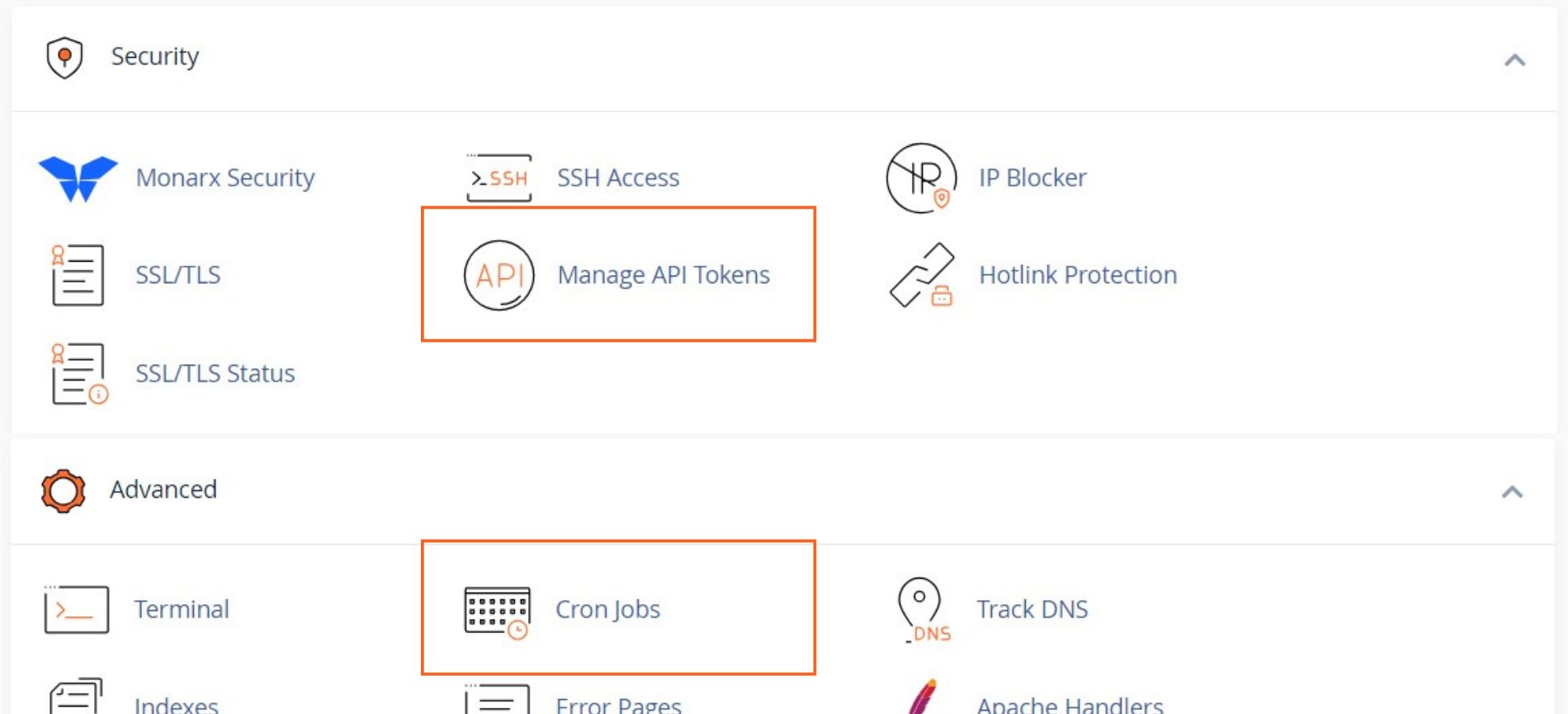
Cron Jobs
Cron jobs in cPanel allow users to automate repetitive tasks by scheduling scripts to run at specific times. This is particularly useful for routine maintenance and updates.
API Access
cPanel provides API access for advanced users who want to integrate their own applications and automate processes further.
Integrating Third-Party Services
Plugins
cPanel supports various plugins, extending its functionality. Users can install plugins to add new features or enhance existing ones.
Extensions
Extensions in cPanel provide additional tools and services, such as advanced security features, SEO tools, and analytics integrations.
cPanel vs. Other Control Panels
Comparisons
When comparing cPanel to other control panels like Plesk or DirectAdmin, cPanel often stands out for its ease of use, extensive documentation, and broad support within the hosting industry.
Pros and Cons
While cPanel is highly regarded, it’s essential to consider its pros and cons. Its strengths include user-friendliness and feature set, but it may be more expensive compared to some alternatives.
Conclusion
cPanel remains a leading choice for web hosting management due to its comprehensive feature set, ease of use, and strong security measures. Whether you’re a novice or an experienced webmaster, cPanel provides all the tools you need to manage your website efficiently. By understanding its features and benefits, you can make the most of this powerful control panel to enhance your web hosting experience.
FAQs About cPanel
What is cPanel? cPanel is a web hosting control panel that provides a graphical interface and automation tools designed to simplify website management.
How do I log in to cPanel? You can log in to cPanel using the login credentials provided by your web hosting provider, typically through a link like http://yourdomain.com/cpanel.
Is cPanel secure? Yes, cPanel includes several security features, such as SSL management, IP blocking, and regular updates to keep your website secure.
Can I manage email accounts in cPanel? Yes, cPanel allows you to create, manage, and configure email accounts associated with your domains.
What applications can I install using cPanel? With cPanel, you can install various applications, including WordPress, Joomla, and Drupal, using the Softaculous auto-installer.
Is cPanel easy to use for beginners? Absolutely. cPanel is designed to be user-friendly, making it an excellent choice for beginners and experts alike.

